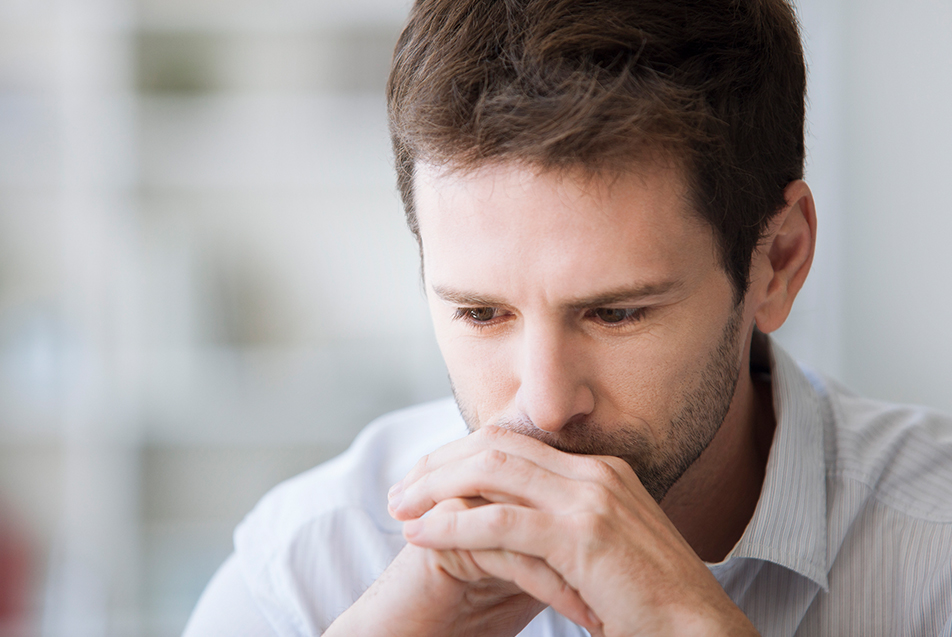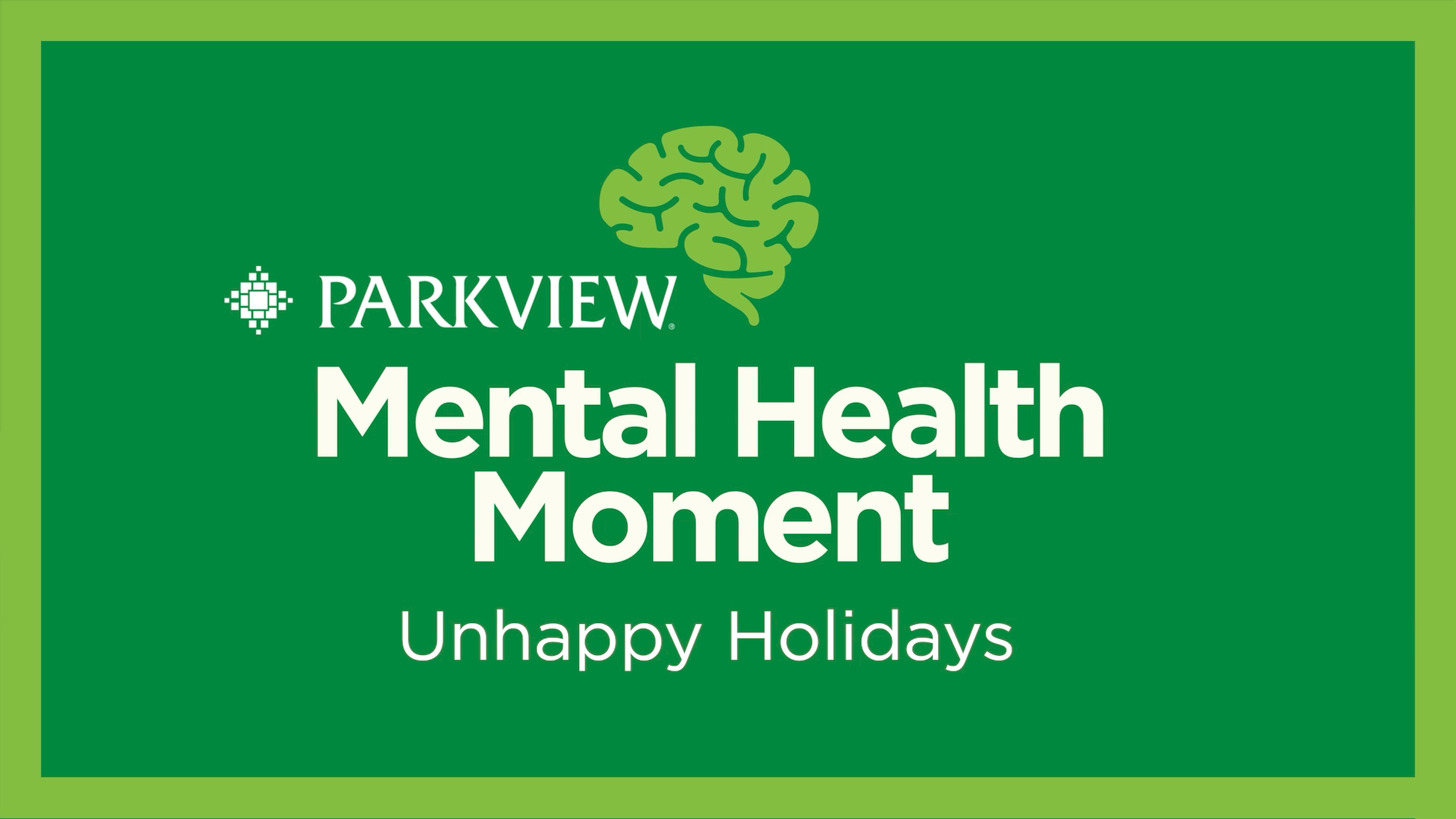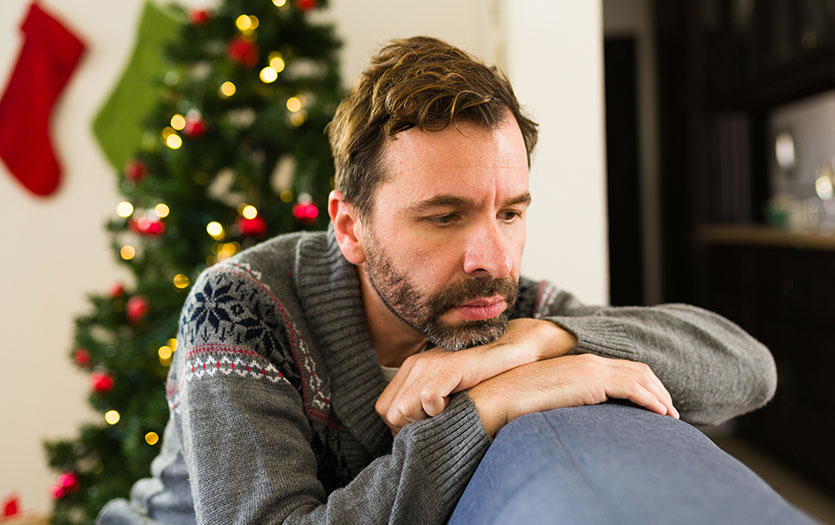
This post was written by Matthew Runyan, MD, section chief, PPG – Psychiatry Hospital Section.
Anxiety – we’ve all felt it. That feeling of restlessness, racing thoughts, “freaking out”. For some people, anxiety is a flash of realization about forgetting something. For others, it’s a crippling mental health condition requiring significant treatment. So what is anxiety exactly, and for those who struggle with it, what can you do when anxiety hits?
Anxiety is a mental health disorder characterized by feelings of worry, anxiety, or fear that are strong enough to interfere with one's daily activities. That last part is the most significant section: it interferes with one's daily activities.
In most people, anxiety is there to push you in the right direction. Have a big project or trip coming up? If you are not feeling prepared, you will likely start feeling anxious about the multitude of things that need to be accomplished prior to the big day. Anxiety tied to a major life event, big vacation, or public speaking opportunity is completely normal. It's the body’s way of saying, "Hey, this thing coming up is pretty important and I don't think we are ready. Let's do something about that!"
Sometimes, it’s a more immediate situation, such as that sudden realization you left your wallet at home, or opening the door to a police officer standing there. This rapid spike in anxiety is a stress response designed to help us hyper focus and be able to deal with an emergent or critical situation. Typically, when the situation is resolved or we become aware that it is not an emergency, the anxiety goes away. But, for others, the racing heart, sweaty palms, and thoughts of worst case scenarios, come on for no apparent reason.
There are multiple official diagnosis for this, including Generalized Anxiety Disorder (GAD), Panic disorder, and Obsessive Compulsive Disorder (OCD). This article will focus on GAD as it is by far the most common.
Generalized Anxiety Disorder
Defined as "persistent and excessive worry about a number of different things,” GAD may cause people to anticipate disaster and be overly concerned about money, health, family, work or other issues. Individuals with GAD find it difficult to control their worry and tend to worry about things that are well outside of their control or extremely unlikely events (getting hit by a meteor, to use a fairly extreme example).
Making long-term plans can be very difficult for people who have GAD, and they tend to have very poor concentration due to the fact that their mind is constantly looking at the world around them in concern. Sometimes it isn't a specific worry, but more of a constant nagging thought about safety or that something bad is about to happen.
Symptoms of anxiety
Often times, GAD can occur in combination with a form of depression. The combination makes things more difficult to treat, though not impossible. All aspects of the combined conditions must be recognized, evaluated and treated to achieve resolution. Thankfully, many of the treatments for depression are effective for anxiety, and vice versa.
Many people can have physical symptoms like restless legs, nausea, sweaty palms and insomnia. Abdominal pain, including nausea and diarrhea are very commonly related to anxiety, as are some chronic pain conditions including headaches and migraines. There is even data to suggest that long-term anxiety conditions can worsen heart health and decrease life expectancy.
In children and teenagers especially, anxiety can show itself through behavioral outbursts or difficulty performing well at school or tasks at home. They may struggle with being on time, finishing assignments on time or are very concerned with having every answer perfect.
When it's a problem?
As mentioned above, anxiety is considered a problem when it interferes with daily activity. This might mean that someone can’t leave the house, calls in sick to work or school, or spends excessive time worrying as opposed to doing. Sometimes those worries and anxieties can lead to suicidal thoughts. If this happens, this is an emergency and that person should be taken to the Emergency Department or contact 911. Otherwise, anxiety by itself rarely requires inpatient hospitalization and can be effectively treated as an outpatient.
Treatment
The most effective treatment for anxiety is therapy combined with medications.
Therapy
Cognitive Behavioral Therapy (CBT) – The current mainstay in anxiety treatment, CBT helps to identify triggers of anxiety, decrease time and intensity spent on anxiety, and alter distorted perceptions of reality (see: the meteor example from before).
Psychodynamic Psychotherapy – This approach usually looks a bit deeper into more complex issues that may be driving anxiety, such as history of traumas, psychosocial stressors contributing to anxiety, and pervasive thought patterns that require more intense adjustments.
Self-care – This aspect is critically important. Keeping a steady sleep cycle significantly reduces anxiety, as does minimizing stress as much as possible. Limiting caffeine, drugs and alcohol, and known stressors is extremely helpful in decreasing anxiety. Meditation and mindfulness are extremely underutilized and can be very powerful in preventing anxiety as well as stopping anxiety after it starts.
Medication
Medications can be very helpful as well. Serotonin Reuptake Inhibitors (SSRI) are the mainstay of anxiety treatment, and typically work by decreasing anxiety before it starts. Other medications, such as hydroxyzine, propranolol or tricyclic antidepressants tend to work better for flare ups of anxiety and less so in prevention. Benzodiazepines have limited use, as they are highly addictive and tend to interfere with therapy, and should be limited to use as needed in very short duration, with a goal to be able to come off of them as soon as possible.
Researchers are studying other forms of treatment and therapy. Future tactics could include acupuncture, yoga, weighted blankets, properly trained therapy animals and CBD.



